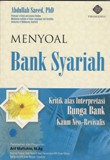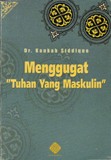Among books we have already discussed in the class, I would argue that Hobsbawm’s work could be the conclusion of all — giving more comprehensive analysis, and combining all what we can find elsewhere. To some extent, he may not really offer new points, but the way he presents his work is more convincing and explanative than others.
He makes similar point with Wallerstein on the idea that capitalism did not develop under perfect market as it had been suggested. While Wallerstein based his conclusion on the international trade in which the middle men, people whose business exploited lack of information between distance regions, play significant role; Hobsbawm refers to the growing convergence between politics and economics. He noted, after 1875, there was growing skepticism about the effectiveness of the autonomous and self correcting market economy.
I like Hobsbawm’s way of using number in this book. Unlike Pomeranz who relies too much on numbers, Hobsbawm uses it in critical way. He makes a nice footnote when he compares GNP of The age of Empire and other ages, “The figure measuring per capita is purely statistical construct… While it is useful for general comparisons of economic growth between different countries and/or periods, it tells us nothing about the actual income standard of living of anyone in the region or about the distribution of incomes in it…” I would say that this is the case. I lived in the US with an income tenfold of my original income in Indonesia, but I don’t live in the better standard of life here. Many Indonesians I meet in the US agree that higher absolute income they receive in the US mean nothing if in Indonesia they have a job with tenfold less of their income in the US.
Another interesting thing I found is his linguistics analysis. More than once, he builds his argument by referring to the use of a term in a given time to achieve a convincing conclusion. For example, To convince that the word “imperialism” is some thing new, a novelty, he explain how it once had neutral term and then acquire pejorative content. “Unlike democracy, which its enemy even like to claim because its favourable connotations, imperialism is commonly something to be disapproved of and therefore done by others” (p. 60). We can find the similar way in his discussion on progress, evolueé, and liberal (p. 30)
As a Marxist historiographer, it is norm to find his similarities Hobsbawm with two other writers before: Wallerstein and Thompson. But, as I insist before, he almost combine all the ways to interpret the history. I certainly agrre with one critics who comment on Hobsbawm’s, sequential work on nineteenth century (The Ages of Revolution, The Age of Capital, and The Age of Empire, plus a work on his own time, The Age of Extremist), “These four volumes are probably the most widely admired of his works -- not simply because of their erudition and bold analysis, but for the author's conviction that historians must write large-scale interpretations of the past without minimizing its diversity and complexity and, at the same time, make them readable, jargon-free, and accessible to non-professionals.”
The Age of Empire
He accounts the Age of Empire (1875 – 1914) as era of stability and unparallel peace, era of the massive organized movements, and an era of identity crisis and transformation either politically and economically. He argues that this era was an era of paradox.
Politically, this was an era of extensive growth of bourgeoisie. Hobsbawm, however, seem give his own emphasize on what is bourgeoisie. When he refers to “bourgeoisie society”, he means freedom and equality of individuals. Democratization is the key feature of such bourgeoisie society and his explanation of democratization, for me, is very interesting and answered my curiosity when last week we discuss violence as a precondition of democracy. Democracy, for him, as fort Aristotle, is government of the mass of public. The mass were, mostly, poor. Problem, then, rise: First, different interest between the poor mass and rich elite, the privileged and unprivileged. Second, easily imagined, what would happen when the masses of people, ignorant and brutalized, unable to understand the logic of Adam Smith’s free market, controlled the political fate of State? In this point, I am really impressed, because it necessarily explains the relation between democracy and violence and it is also able to explain what happen in Indonesia during its reformation.
It was an era when political and cultural institutions of bourgeoisie liberalism were extended, but the cost of forcing its main class, the liberal bourgeoisie, on to the margins of political power. For electoral democracies, which were inevitable product of liberal process, liquidated bourgeois liberalism as a political force in most countries. Its very existence as a class of masters was undermined by the transformation of its own economic system.
Another paradox was economical paradox. On the one hand most contemporaries, as it was reflected in the literature of the time, fear of economical depression. On the other hand, the fact that we can find shows incredible growth of economics. It was the time when American and Germany industrial economics advanced with giant step. Foreign investment in Latin America reached the dizziest heights in the 1880, as the railway system In Argentina and Brazil attract 200,000 immigrants per year. Hobsbawm himself call this age as the change of economic gear.
However difficult it is to understand likely “collective delusion” of economic fear, the results were important for the age. It least there are three important reaction to the assumed economic depression. The first is protectionism of national economy. Unlike what market economy might assume, protectionism for that time was positive for the local market. Because it intensified and concentrated the capital into local market and made it extending.
The second way to depression was the use of “scientific management”, that is: (1) by isolating each worker from the work group and transferring the control of the process from the worker to the agent of management; (2) systematic break-down of each process into timed component; (3) various system of wage payment.
The third way was imperialism. The pressure of capital in search of more profitable investment, as of production of markets contributed to the policy of expansion — including colonial conquest. It is a matter of debate, but Hobsbawm insist his account that imperialism is a result, not cause, of expansion of capitalism.
The Most Explanatory Work
I have talked with one of my classmates that up to last week I didn’t really have all answers for the guiding questions of final paper in the syllabus. Reading Hobsbawm, however, most of the picture of modern world is now beforehand for me.
Diamond explanation date too far to the pre-history and give irrelevant answer for the contemporary world. Wallerstein’s work is more focused on economics explanation. Pomeranz relay too much on numbers and tend to exaggerate the similarities between Western world and other world. Moore’s work is comprehending in topics but not really satisfying in the term of academic standard. Thompson’s work is beautiful, human, and explanatory enough, but limited to the English case. Now, we have Hobsbawm who combines all of the above mentioned work: he did explain the root of contemporary world and it is still relevant to read what happen in this era. If I have more time, I would read it again and read his other three relevant works.
thematic category
Monday, November 28, 2005
The Age of Empire
Posted by Arif Maftuhin at 10:36 PM
Subscribe to:
Post Comments (Atom)










0 comments:
Post a Comment